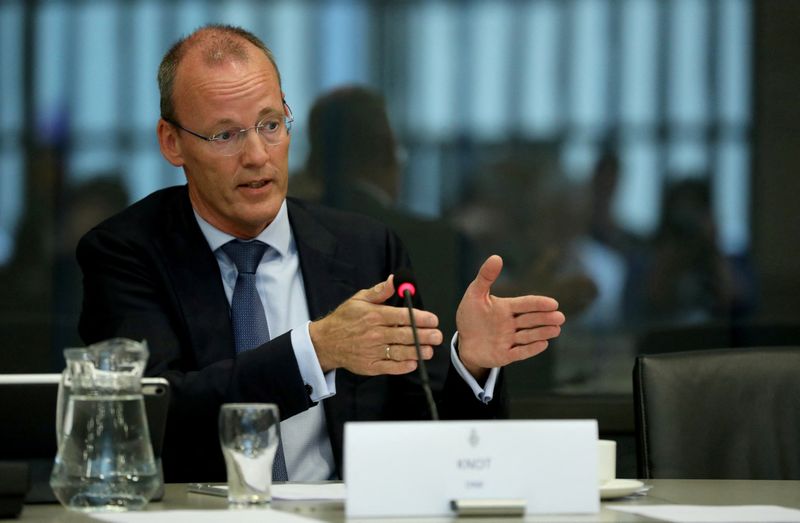G20 watchdog tells climate standard setters not to hardwire differences
2022.10.11 04:19
[ad_1]

© Reuters. FILE PHOTO: ECB board member Klaas Knot appears at a Dutch parliamentary hearing in The Hague, Netherlands September 23, 2019 REUTERS/Eva Plevier
By Huw Jones
LONDON (Reuters) – Standard setters must work faster to avoid hardwiring differences between their finalised climate-related company disclosures, which would fragment markets, the G20’s Financial Stability Board (FSB) said on Tuesday.
To help meet net-zero carbon emission targets, companies face mandatory rules on telling investors how climate change will affect their bottom line.
The International Sustainability Standards Board (ISSB) is working on a set of global “baseline” norms it plans to finalise by early 2023 for use in countries like Britain.
The European Union is aiming finalising its own, more comprehensive set of disclosures for 50,000 companies by next month. They go further than the ISSB by including detailed coverage of a company’s impact on the environment, and also covering social and governance issues with bespoke norms.
The U.S. Securities and Exchange Commission has also proposed climate-related disclosures.
Klaas Knot, the Dutch central bank president who chairs the FSB, said developing the disclosures provides a unique opportunity to avoid “harmful fragmentation” in markets so that users can compare companies from across the world.
“Interoperability between the common global baseline and national and regional jurisdiction-specific requirements will be essential,” Knot said in a letter to G20 finance ministers meeting in Washington this week.
“This needs to be built in early on, and certainly before frameworks are finalised and become hard to adjust.”
The FSB echoed calls from the European Central Bank and the International Monetary Fund.
The new disclosure rules will replace a patchwork of practices which have made it hard for investors to compare companies, but business groups say terminology needs aligning.
The FSB said further work will be needed to achieve interoperability given that differences in approaches and pace of progress across jurisdictions remain, the FSB said.
[ad_2]
Source link








